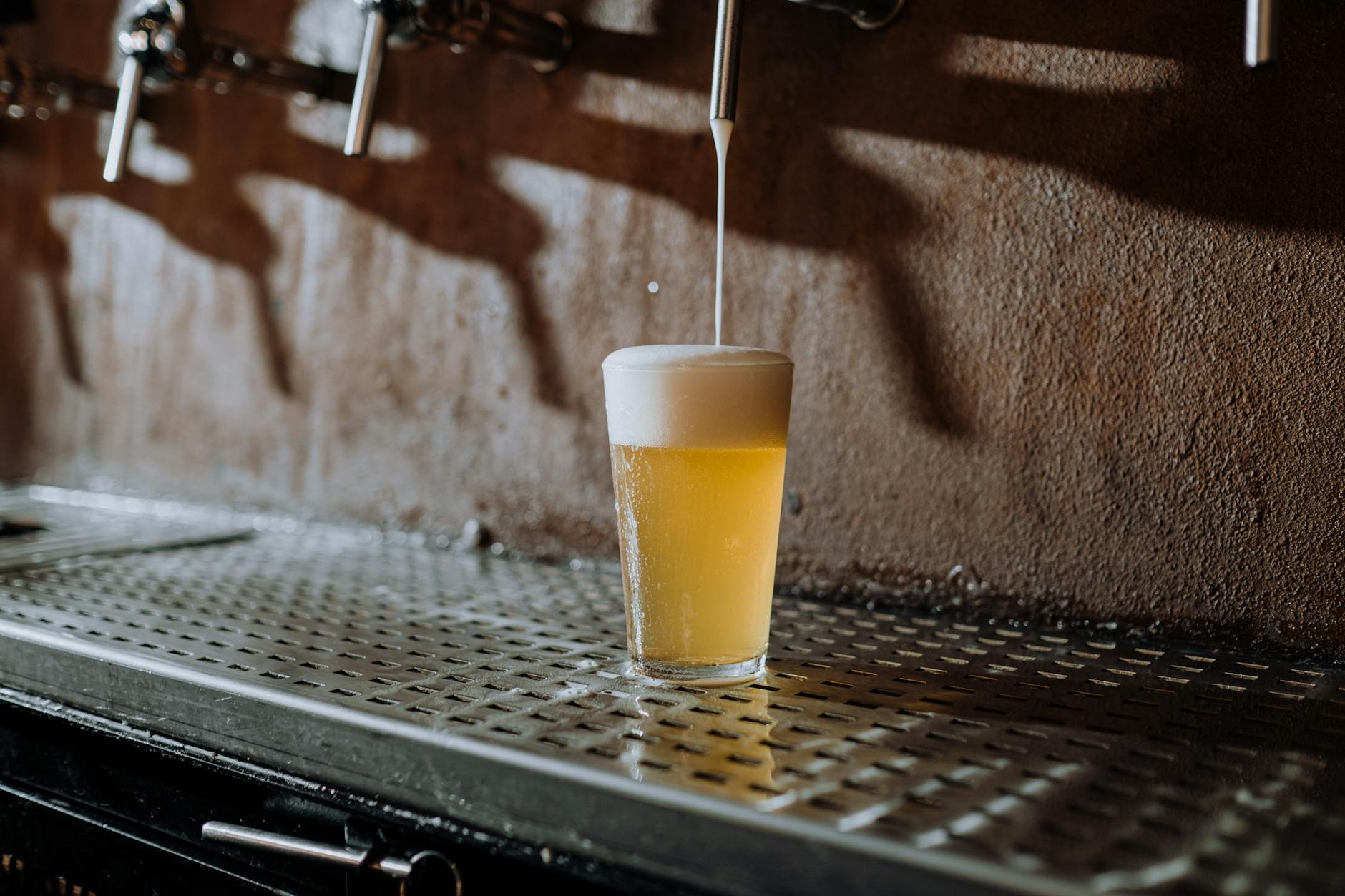Unlock the mystery of intoxication levels and find out just how many beers it takes to reach full intoxication!

Image courtesy of cottonbro studio via Pexels
Table of Contents
As humans, we are naturally curious creatures, always seeking to understand the world around us. One question that has piqued the interest of many is: how many beers does it take to get drunk? This seemingly simple question actually has a complex answer, as it depends on a variety of factors such as individual tolerance levels, alcohol metabolism, and other influences on intoxication.
Delving Into Alcohol Metabolism
Alcohol metabolism is a fascinating process that occurs in the body when we consume alcoholic beverages. When alcohol is ingested, it is broken down by enzymes in the liver. The main enzyme responsible for alcohol metabolism is alcohol dehydrogenase. This enzyme converts alcohol into acetaldehyde, which is then further metabolized into acetate by aldehyde dehydrogenase. The rate at which alcohol is metabolized can vary depending on factors such as age, weight, and gender.
Understanding Individual Tolerance Levels
Individual tolerance to alcohol can vary greatly from person to person. Tolerance refers to the body’s ability to handle and process alcohol. Those who drink alcohol regularly may develop a higher tolerance, meaning they need to consume more alcohol to feel the same effects. Conversely, individuals who do not drink often may have a lower tolerance and feel the effects of alcohol more quickly.
Factors Influencing Intoxication
There are several factors that can influence how intoxicated a person becomes after consuming alcohol. One key factor is food consumption. Eating a meal before or while drinking alcohol can slow down the rate at which alcohol is absorbed into the bloodstream, potentially reducing the effects of intoxication. Mixing different types of alcohol can also have varying effects, as different beverages may contain different alcohol content levels.

Image courtesy of alcohol.org via Google Images
Hydration is another important factor to consider when drinking alcohol. Staying hydrated can help the body process alcohol more efficiently and reduce the risk of dehydration and its associated symptoms. Additionally, fatigue and overall health can impact how alcohol affects an individual. Being tired or in poor health can make a person more susceptible to the effects of alcohol.
Conclusion
So, how many beers does it take to get drunk? The answer is not a straightforward one, as it depends on a multitude of factors including individual tolerance levels, alcohol metabolism, and various influences on intoxication. By understanding these factors and making informed decisions about alcohol consumption, individuals can better manage their alcohol intake and enjoy a safe and responsible drinking experience.
Remember, it’s always important to drink responsibly and be mindful of your own limits when consuming alcohol. Cheers to sippin’ science and gaining a better understanding of the fascinating world of alcohol intoxication!
FAQs
How does alcohol affect the body?
Alcohol affects the central nervous system, slowing down brain function and impacting motor skills and judgment. It is quickly absorbed into the bloodstream and can lead to short-term effects such as relaxation, lowered inhibitions, and impaired coordination.
Can I speed up alcohol metabolism?
The rate of alcohol metabolism is largely determined by genetics, age, and overall health. Staying hydrated, eating a meal before drinking, and maintaining a healthy lifestyle can support the body’s ability to process alcohol more efficiently.
How can I calculate my blood alcohol concentration?
Blood alcohol concentration (BAC) can be estimated using online calculators or formulas based on factors such as weight, gender, number of drinks consumed, and the duration of drinking. Keep in mind that BAC calculators provide estimates and actual levels may vary.
Is there a safe limit for alcohol consumption?
The definition of a safe limit for alcohol consumption varies among individuals and health organizations. In general, moderate drinking is defined as up to one drink per day for women and up to two drinks per day for men, with a standard drink containing around 14 grams of pure alcohol.
Powered by Texta.ai Blog Automation
Leave a Reply